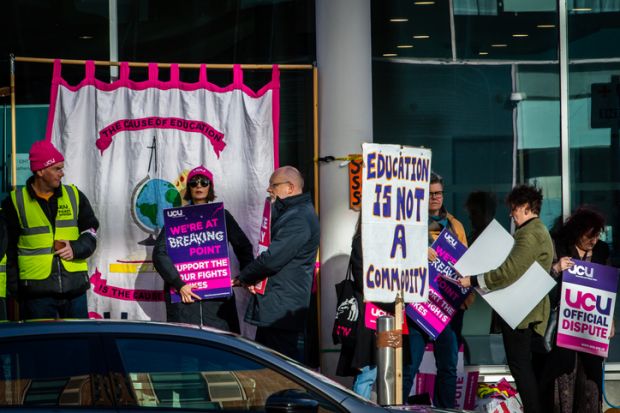UK higher education’s funding crisis has been developing for 15 years. When the coalition government introduced £9,000 fees for home undergraduates at English universities and cut block grants for teaching in 2012, it turned the economics of student recruitment upside down. Stable finances, planning and regulation were lost in a scramble for bums on seats.
This accelerated when student recruitment caps were abolished – partially in 2014, and then fully a year later. University managers realised that each home undergraduate earned them £2,000 more than they cost to teach, so they could make serious money via economies of scale. Thus began a splurge to invest in campuses, buildings and marketing departments.
But as the value of England’s regulated undergraduate fees fell in real terms – alongside that of the government grants that remained, in various forms, elsewhere in the UK – universities increasingly relied on the subsidy provided by unregulated, exploitative international fees.
It took only a decade for the system to go from boom to bust. Last year, vice-chancellors started announcing redundancies on a mass scale, reaching more than 10,000 in 2023-24. This year, the pace of announcements is only increasing. The scale of destruction hitting higher education is immense. The economic models behind UK higher education are imploding.
Clearly, members look to unions during times like these. Last May, members of the University and College Union voted at our UK higher education sector conference (our key higher education decision-making body) for a campaign to start building a UK-wide industrial response to the crisis.
Last December the UCU higher education committee voted to act on this resolution. Unfortunately, this decision hasn’t been implemented in a timely way to allow strategic action in advance of Labour taking decisions on higher education funding. Instead, we’ve seen repeated delegitimising of UCU members’ decisions.
We all get involved in unions to make a difference, and we won’t always agree on how to do that. This is why UCU strategy is led by conferences, to which all branches can send representatives and proposals. This gives everyone a hearing, making sure we assess different views fairly and take binding decisions together. Union democracy supports good decision-making. Sometimes union members are disappointed with those decisions, but we need to behave in a collegial fashion and respect democracy.
An ongoing approach of denouncing UK-wide action is not delivering sector security. Instead, the carnage is intensifying. UCU branches and the staff supporting them have shown huge resilience in local fights but members are being made redundant in droves.
If we understand that the UK’s various university funding models are all broken, dooming the sector to escalating decline until they are replaced, then there is an obvious problem with limiting industrial action to defensive branch battles on redundancy: the employer can wait out the branch.
To meaningfully act in the interests of members moving forward, UCU must do two things: escalate beyond branches being hit and politically challenge the funding model.
Even though the funding crisis is made in Westminster and the other national capitals, UK anti-union law stipulates that industrial activity must be tied to employment conditions. This means such a campaign has to be conducted over pay.
You don’t have to look far to see this in practice. After all, that’s what the National Education Union did in English schools, taking strike action on pay as part of a wider campaign for increased school funding. It’s also what our Unison colleagues in higher education are doing right now. UCU must not be misdirected into paralysis. Repeating the line that pay cuts save jobs just reinforces the logic leading the higher education sector to collapse; pay suppression and job cuts are both caused by failure to fund universities in a sustainable way.
If the UCU is united and confident, we can take on the challenges we face. At my branch, Birmingham City University (BCU), we’ve doubled our membership. BCU does not participate in national bargaining over pay and conditions, isolating us, but we’ve fought disputes on safety and pay, beating ballot turnout thresholds and establishing a BCU bargaining and negotiating body. Our members are engaged and ready to fight: they trust branch leaders. This comes from clear, consistent messaging on strategy, united leadership, and negotiators’ understanding of the importance of organised leverage.
It also comes from keeping members informed and in charge of decisions. I’ve used this approach at regional and UK level, winning me endorsements across the union for my commitment to building confidence through mutual respect and consensus. I strongly believe that for the UCU to respond credibly in the current crisis after a period of internal division, we need leaders who understand and will demonstrate commitment to a member-led approach.
I am standing for UCU vice-president, not because I have all the answers, but because I believe in our collective capacity to bring meaningful change. Democracy, integrity and unity are key to getting UK higher education through the storm.
The market system has set universities against each other in cut-throat competition. Our job as trade unionists is to resist division. We need to stand up and fight for the sector and for everyone who works and studies in it.
Rhiannon Lockley is a foundation year lecturer in the Faculty of Health, Education and Life Sciences at Birmingham City University, where she is UCU branch chair.

